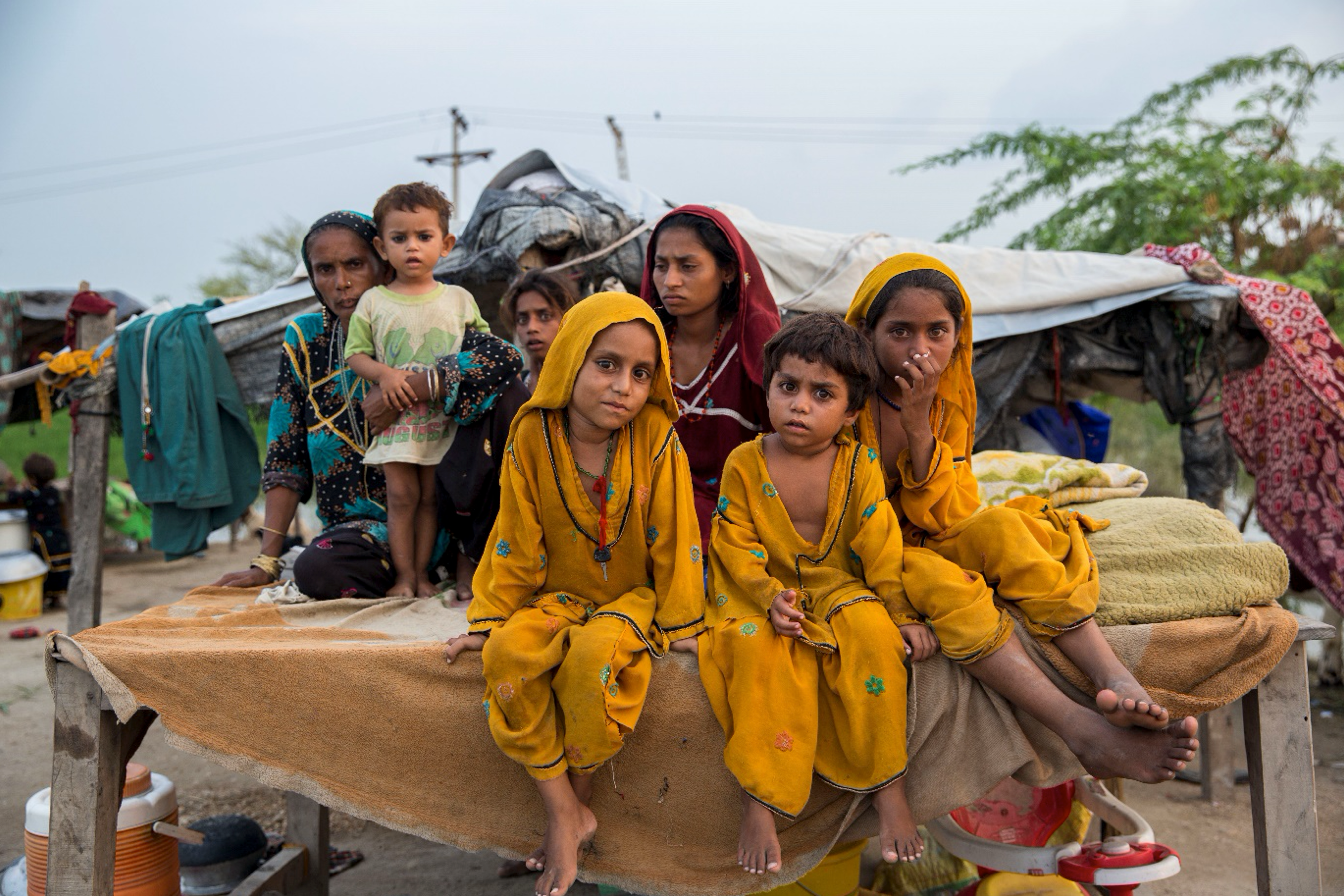Pakistan floods: Families forced to live in the open and rely on emergency food
Dozens killed and thousands displaced as monsoon rains destroy homes and livelihoods

Your support helps us to tell the story
From reproductive rights to climate change to Big Tech, The Independent is on the ground when the story is developing. Whether it's investigating the financials of Elon Musk's pro-Trump PAC or producing our latest documentary, 'The A Word', which shines a light on the American women fighting for reproductive rights, we know how important it is to parse out the facts from the messaging.
At such a critical moment in US history, we need reporters on the ground. Your donation allows us to keep sending journalists to speak to both sides of the story.
The Independent is trusted by Americans across the entire political spectrum. And unlike many other quality news outlets, we choose not to lock Americans out of our reporting and analysis with paywalls. We believe quality journalism should be available to everyone, paid for by those who can afford it.
Your support makes all the difference.On 13 September, near the city of Badin, I entered one of Pakistan’s worst flood-affected areas. For several kilometres and pretty much as far as the eye could see, there were temporary camps for the flood-affected, dispossessed communities, with families living in hastily erected shelters on the roadside.
Some 136 people have been reported dead and thousands have been displaced in this year’s monsoon season, exacerbated by the effects of climate change. The United Nations World Food Programme has reached 11,000 people with emergency food assistance and is calling for $500,000 (£400,000) to increase its reach, particularly in the Sindh region—up to 300,000 people are in need of food assistance.
Communities face serious health risks living in appalling conditions. Flies and mosquitos are everywhere. Getting by is a daily struggle. People walk long distances in search of fresh water—the alternative is to drink from the dirty water along the roadside that children play in. Many do just that.
Women bathe their children in the same water they wash clothes in. Limited supplies of clean water are strictly rationed.
Many farmers lost their cattle in the floods. Some built makeshift shelters for the animals and shared whatever clean water they could spare with them.
For some towns and villages, such as the ones in Mirpurkhas district, we had to travel by motorboat to reach the area. Villagers there told us that they hadn’t seen any outsiders ever since the floods devastated their homes and that all their crops were now gone and possessions lost; no more houses, and nothing to eat.
If they are left alone to fend for themselves, these communities may not able to make it. Their mud houses and fragile livelihoods as subsistence farmers cannot withstand such an onslaught.
Working closely with the National Disaster Management Authority (NDMA) and Provincial Disaster Management Authority (PDMA) in Sindh, the World Food Programme has provided them with food rations — flour, pulses, cooking oil, and nutritious edibles for children to prevent malnutrition from setting in.
At one such distribution site, in Umerkot, one villager asked, “What will happen when this runs out? And how can we rebuild our homes?”
All along the main road of the city of Badin are kilometres and kilometres of hastily erected shelters, with dispossessed families seeking refuge, not knowing when they may be able to have a proper dwelling for themselves to move into.
The devastation is equally visible in an urban slum that we visited in the city of Karachi. Amid damaged houses and roads, children were running around barefoot; mothers with babies navigated puddles of floodwater and sewage.
The effects of climate change are being increasingly felt in Sindh, and they are taking a particularly heavy toll on these communities of subsistence farmers, nomadic tribes, as well as on those living in urban slums. Urgent assistance is required now.
You can learn more about the World Food Programme here wfp.org
Join our commenting forum
Join thought-provoking conversations, follow other Independent readers and see their replies
7Comments